
Jitka Borowick on Starting a Small Business during COVID
0 Comments
/
This week on JobMakers, Guest Host Jo Napolitano talks with Jitka Borowick, Founder & CEO of Cleangreen, a cleaning service committed to environmentally-friendly practices, and Nove Yoga, launched during COVID. Jitka grew up under communism in the Czech Republic. Determined to learn English, she made her way to the U.S., initially with plans to stay for only one year - but ended up making it her home. Jitka shares the difficulties of learning another language and culture, her pathway to entrepreneurship, her courageous decision to open a new business during a pandemic, and how her companies have successfully adapted to the challenges so many small businesses have encountered over the past year.

Study: Massachusetts Should Retain Additional Healthcare System Flexibility Granted During Pandemic
Massachusetts’ emergency declaration for COVID-19 ends on June 15, and with it some enhanced flexibility that has been allowed in the healthcare system. Some of the added flexibility highlighted barriers that make the system more expensive, harder to access and less patient-centered, and the Commonwealth should consider permanently removing these barriers, according to a new study published by Pioneer Institute.

Blended Learning Expert Heather Staker on Student-Centered Lessons During COVID-19
This week on “The Learning Curve," Gerard and Cara talk with Heather Staker, founder and president of Ready to Blend. They discuss her work with the late Harvard Professor Clayton Christensen and Michael Horn on disruptive innovation and schooling, as well as her book, Blended: Using Disruptive Innovation to Improve Schools, and her recent publication, Developing a student-centered workforce through micro-credentials.
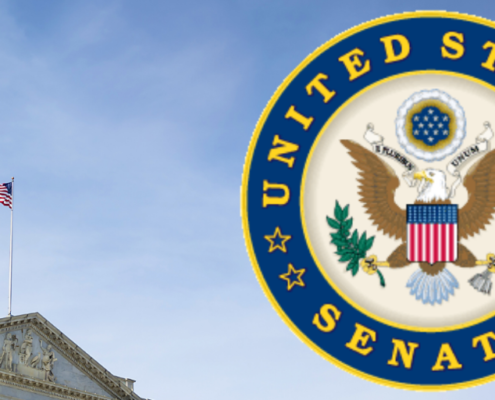
“Ballast for the Ship of State” – The U.S. Senate – 40 Resources for High School Students
The U.S. Senate’s vital, though sometimes dormant, authority in the face of the Imperial Presidency means few Americans and schoolchildren truly understand its constitutional role and inner workings. To remedy this, we’re offering a variety of resources to help parents, teachers, and high schoolers.

BU’s Dr. Farouk El-Baz on NASA’s Moon Landing, Remote Sensing, & STEM
This week on “The Learning Curve," Gerard and Cara talk with Dr. Farouk El-Baz, retired research professor and director of the Center for Remote Sensing at Boston University. They discuss his remarkable, varied, and pioneering career in the sciences, surveying both the heavens and the Earth, and key teachers and scientists who have influenced him. Dr. El-Baz shares what it was like serving as supervisor of Lunar Science Planning for NASA's Apollo program, and working on the world-changing project of putting a human on the Moon.

Neptune’s Domain – Oceans, Seas, & Their Creatures- 25 Resources for K-12 Students
Since water is all around us and in us, students should know more about the major bodies of water that shape our planet and our lives, including: what we eat, how we travel, our trade, our wars, and the many fascinating creatures who live in the oceans and seas. In fact, scientists estimate that 91 percent of ocean species remain unclassified, and over eighty percent of our ocean is unmapped and unexplored. We clearly have more work ahead of us to better understand the water that covers most of our world. To assist in this aquatic discovering, mapping, and exploring, we’re offering a variety of resources to help parents, teachers, and K-12 students.

Origin of COVID-19: As Animal Source Evidence Eludes Scientists, Lab Leak Hypothesis Gains Purchase
This week on Hubwonk, host Joe Selvaggi talks with author and former New York Times science journalist Nicholas Wade about his recent article in the Bulletin of the Atomic Scientists on the possible origins of the SARS2 virus that caused the COVID-19 pandemic. In their conversation, they consider the possibility that, absent finding evidence of a natural jump from animals, the SAR2 virus may have come from a lab.

Mahmud Jafri Builds on a Pakistani Legacy in America
This week on JobMakers, Host Denzil Mohammed talks with Mahmud Jafri, who built on a legacy started by his grandfather and began importing hand-knitted rugs from his native Pakistan, creating opportunities especially for women who traditionally couldn’t work outside the home. Today, he has three Dover Rug & Home stores across Massachusetts, including the Back Bay.
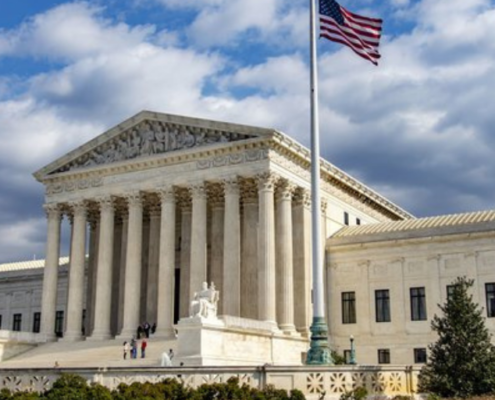
A Republic of Laws – The U.S. Supreme Court – 40 Resources for High School Students
In Pioneer’s ongoing series of blogs on curricular resources for parents, families, and teachers during COVID-19, this one focuses on: Celebrating the U.S. Supreme Court.

Study Calls for Better Reporting on Impact of COVID-19 in Eldercare Facilities
Over time, the Massachusetts Executive Office of Health and Human Services and Department of Public Health (DPH) have improved reporting about cases and deaths from COVID-19 in state-regulated eldercare facilities, but flaws and omissions remain and should be corrected, according to a new study published by Pioneer Institute.
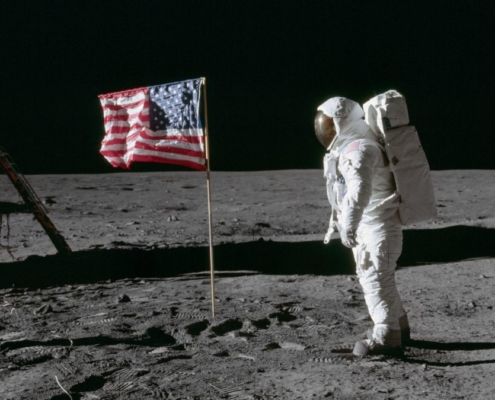
“The Road to the Stars” – U.S. Space Exploration – 25 Resources for K-12 Students
In Pioneer’s ongoing series of blogs on curricular resources for parents, families, and teachers during COVID-19, this one focuses on: Celebrating U.S. Space Exploration.

Amar Sawhney on Sikhs, STEM & COVID
On this week's episode of JobMakers, host Denzil Mohammed talks to Dr. Amar Sawhney about his journey from India to Boston, and how he is using his chemical engineering background to save lives through remarkable local therapy innovations. To date, he has founded eight companies accounting for 4,000 jobs and more than $2 billion in revenue.

Heritage Foundation’s Jonathan Butcher on Edu Federalism, School Choice, Learning Pods
This week on “The Learning Curve," Gerard and Cara talk with Jonathan Butcher, the Will Skillman Fellow in Education at The Heritage Foundation. They discuss the growing popularity of learning pods, an education innovation propelled by K-12 public education’s failure to meet the COVID-19 moment. With as many as three million children enrolled in learning pods, 35 percent of parents participating in them, and another 18 percent interested in joining one, Butcher shares findings from his report on the role of pods in expanding parent-driven educational choice options.

Study Says Interstate Tax Competition, Relocation Subsidies Exacerbate Telecommuting Trends
A spate of new incentive and subsidy programs seeking to lure talented workers and innovative businesses away from their home states could constitute an additional challenge to Massachusetts’ economic and fiscal recovery from COVID-19, according to a new study published by Pioneer Institute.
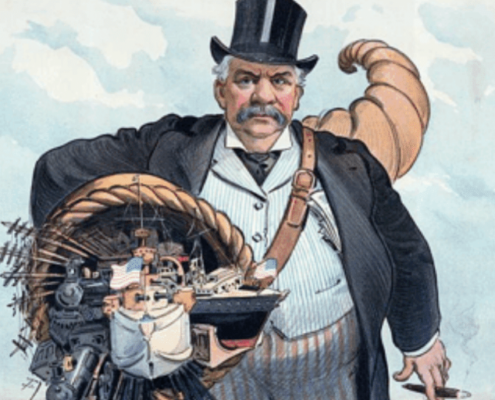
“The Business of America is Business” – 25 Resources for High School Students
In Pioneer’s ongoing series of blogs on curricular resources for parents, families, and teachers during COVID-19, this one focuses on: Celebrating American Free-Market Capitalism.

Georgetown’s Dr. Marguerite Roza on K-12 School Finance, Spending, & Results
This week on “The Learning Curve," Gerard and Cara talk with Dr. Marguerite Roza, Research Professor and Director of the Edunomics Lab at Georgetown University. Professor Roza describes the three distinct phases of how American K-12 education has been funded over the last 40 years, and implications for equity and overall student achievement.

Massachusetts Should Disclose More Information about Its Recent Reduction in the Official Count of Long-term Care Deaths
The public -- particularly in Massachusetts, where COVID-19’s toll on elders has been so great -- has a right to know how many deaths occurred in state-regulated eldercare facilities, and how that compares to the total number of deaths. But the state's new counting standard clouds this information, and should be corrected or at least disclosed.

Preparing For Disaster: Health Readiness Expert’s Performance Review
Hubwonk Host Joe Selvaggi talks with Emergency Preparedness expert Dr. Paul Biddinger about how experts plan for disasters, and what went right and wrong in this pandemic.

Study Warns Massachusetts Tax Proposal Would Deter Investment, Stifling the “Innovation Economy”
A state constitutional amendment promoted by the Massachusetts Teachers Association and the Service Employees International Union adding a 4 percent surtax to all annual income above $1 million could devastate innovative startups dependent on Boston’s financial services industry for funding, ultimately hampering the region’s recovery from the COVID-19 economic recession, according to a new study published by Pioneer Institute.
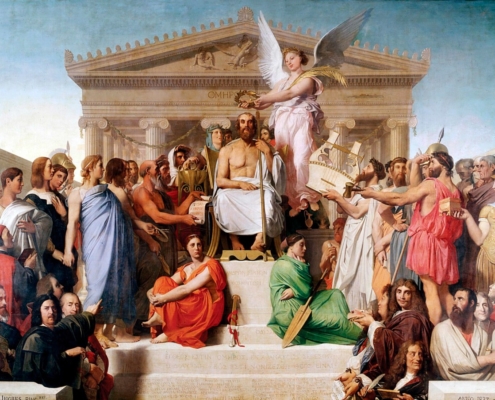
“Be Strong, Saith My Heart” – National Poetry Month – 40 Resources for K-12 Students
In Pioneer’s ongoing series of blogs on curricular resources for parents, families, and teachers during COVID-19, this one focuses on: Celebrating National Poetry Month.

Stanford’s National Humanities Medal Winner Prof. Arnold Rampersad on Langston Hughes & Ralph Ellison
This week on “The Learning Curve," Gerard and Cara talk with Professor Arnold Rampersad, the Sara Hart Kimball Professor Emeritus in Humanities at Stanford University and recipient of the National Humanities Medal for his books including The Life of Langston Hughes and Ralph Ellison: A Biography.

Study Shows the Adverse Effects of Graduated Income Tax Proposal on Small Businesses
The state constitutional amendment promoted by the Massachusetts Teachers Association and the Service Employees International Union to add a 4 percent surtax to all annual income above $1 million will adversely impact a significant number of pass-through businesses, ultimately slowing the Commonwealth’s economic recovery from COVID-19, according to a new study published by Pioneer Institute.
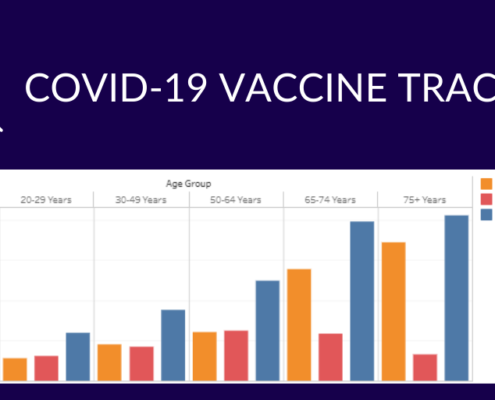
COVID-19 Vaccine Tracker
Pioneer is proud to present a new vaccine tracker, the newest tool in our COVID-19 tracking project. Pioneer distilled the vaccination data down to those who are either fully vaccinated or partially vaccinated, by all the demographic categories published by the DPH. Use the new tool below to compare rates among groups, by municipality and by county. We will update the data every week.

The Washington Post’s Jay Mathews on An Optimist’s Guide to American Public Education
This week on “The Learning Curve," Gerard and Cara talk with Jay Mathews, an education columnist for The Washington Post and author of the recent book, An Optimist's Guide to American Public Education. Jay describes the three key trends in K-12 schooling that he views as cause for hope.
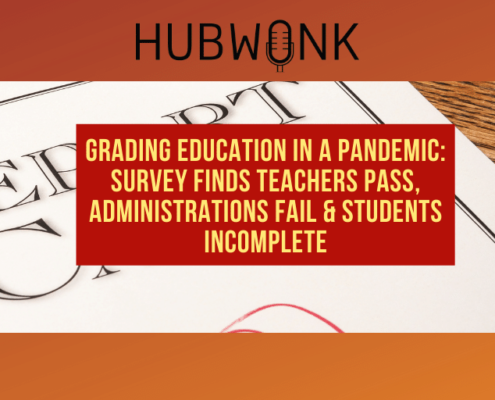
Grading Education in a Pandemic: Survey Finds Teachers Pass, Administrations Fail & Students Incomplete
This week on Hubwonk, Joe Selvaggi discusses a recently released survey from Pioneer Institute and Emerson Polling, "Massachusetts Residents’ Perceptions of K-12 Education During the Covid-19 Pandemic," with Emerson's lead analyst, Isabel Holloway, and Pioneer Institute’s Charlie Chieppo.

Poll Finds Mixed Views About Schools’ Pandemic Performance
A year into the COVID-19 pandemic, Massachusetts residents have mixed opinions about how K-12 education has functioned, but they tend to view the performance of individual teachers more favorably than that of institutions like school districts and teachers’ unions, according to a poll of 1,500 residents commissioned by Pioneer Institute.

Doctor Heal Thyself: Insider’s Prescription For Healthcare Reform
Host Joe Selvaggi talks with surgeon and New York Times bestselling author Dr. Marty Makary about the healthcare reform themes in The Price We Pay, the 2020 Business Book of the Year. The discussion covers the value of price transparency, provider accountability, and performance information to drive better medical outcomes and improve doctor and patient satisfaction.

New Study Warns Graduated Income Tax Will Harm Many Massachusetts Retirees
If passed, a constitutional amendment to impose a graduated income tax would raid the retirement plans of Massachusetts residents by pushing their owners into higher tax brackets on the sales of homes and businesses, according to a new study published by Pioneer Institute. The study, entitled “The Graduated Income Tax Trap: A retirement tax on small business owners,” aims to help the public fully understand the impact of the proposed new tax.

Dartmouth’s Prof. Susannah Heschel Discusses Rabbi Abraham Joshua Heschel & the Civil Rights Movement
This week on “The Learning Curve," Gerard and Cara talk with Dr. Susannah Heschel, the Eli M. Black Distinguished Professor of Jewish Studies at Dartmouth College, and the daughter of noted 20th-century Jewish theologian and Civil Rights-era leader, Rabbi Abraham Joshua Heschel. They discuss what teachers and students today should know about Rabbi Heschel’s life and legacy.

Study: Graduated Income Tax Proponents Rely on Analyses That Exclude the Vast Majority Of “Millionaires” to Argue Their Case
Advocates for a state constitutional amendment that would apply a 4 percent surtax to households with annual earnings of more than $1 million rely heavily on the assumption that these proposed taxes will have little impact on the mobility of high earners. They cite analyses by Cornell University Associate Professor Cristobal Young, which exclude the vast majority of millionaires, according to a new study published by Pioneer Institute.
